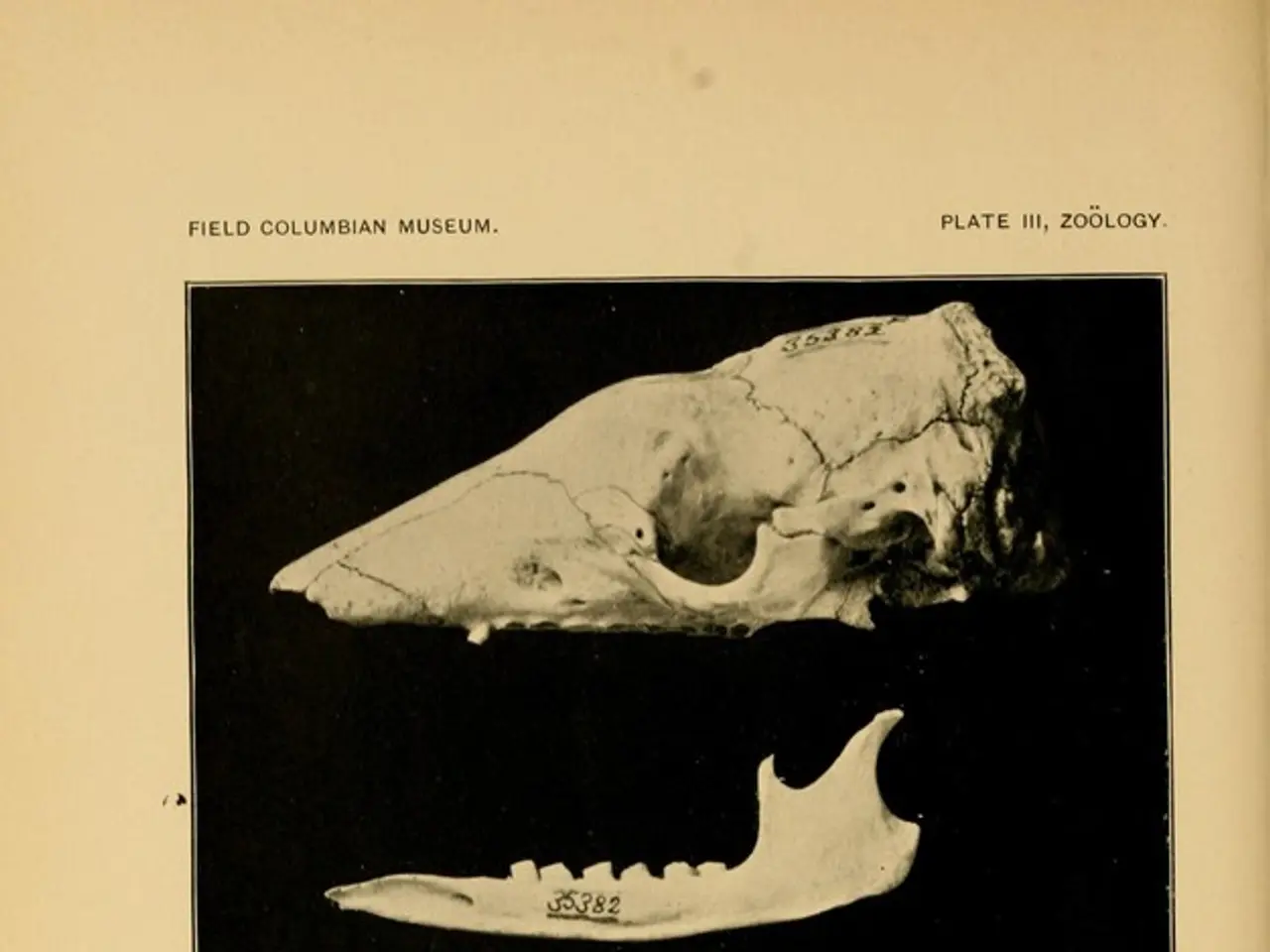Alternative approaches for addressing osteoporosis: Physical activity, nutrition, and additional strategies
Tackling Osteoporosis: A Comprehensive Approach
Osteoporosis, a condition that weakens bones and increases the risk of fractures, can be managed effectively through a combination of lifestyle changes, diet, exercise, and medical intervention.
For those battling osteoporosis, quitting smoking and limiting alcohol consumption is crucial, as these habits can weaken bones further. It's always best to consult with a doctor for personalised advice on treating osteoporosis.
A balanced diet rich in essential nutrients plays a vital role in maintaining bone health. Calcium and vitamin D are essential for bone structure and absorption respectively. Foods rich in calcium include dairy products, leafy greens like broccoli and kale, almonds, and fortified plant-based milks. Vitamin D can be sourced from sunlight exposure, fatty fish, egg yolks, and mushrooms. In some cases, supplementation may be advised by a doctor.
Protein, especially from animal sources, supports bone formation and density. Sources include lean meats, eggs, seafood, nuts, lentils, beans, and tofu. Vitamin K2, found in animal products and fermented foods, helps the body metabolize calcium. Magnesium, zinc, and collagen peptides are other minerals and supplements that can support bone health.
Regular physical activity is another key factor in treating osteoporosis. Weight-bearing and resistance training activities stimulate bone growth and maintain density. These activities include walking, running, dancing, lifting weights, and strength training. Progressive resistance training 2–5 times weekly for several months is particularly effective. Balance exercises, such as Tai Chi and yoga, also reduce the risk of falls and fractures.
Multicomponent exercise programs, combining strength, cardio, and balance training, yield the best bone density improvements and quality of life. It's important to note that exercise programs should be structured and supervised, especially in those with osteoporosis.
Lifestyle factors such as ensuring adequate sleep and managing hormonal balance are also crucial for optimal bone health.
In conclusion, a calcium, vitamin D, protein-rich diet, combined with weight-bearing and balance exercises, and lifestyle modifications offers an effective natural strategy to increase bone density and slow osteoporosis progression. Regular exercise can help improve coordination and balance, reducing the risk of falls and fractures. Always consult with a healthcare professional for personalised advice and guidance.
[1] National Osteoporosis Foundation. (2021). Exercise and Osteoporosis. [online] Available at: https://www.nof.org/patients/treatment/exercise/
[2] International Osteoporosis Foundation. (2017). Nutrition and Osteoporosis. [online] Available at: https://www.iofbonehealth.org/nutrition-and-osteoporosis
[3] Mayo Clinic. (2021). Osteoporosis Prevention, Diagnosis & Treatment. [online] Available at: https://www.mayoclinic.org/diseases-conditions/osteoporosis/diagnosis-treatment/drc-20353833
[4] Cleveland Clinic. (2021). Osteoporosis: Foods to Boost Bone Health. [online] Available at: https://my.clevelandclinic.org/health/articles/17395-osteoporosis-foods-to-boost-bone-health
[5] Harvard Health Publishing. (2020). Collagen supplements: What the science says. [online] Available at: https://www.health.harvard.edu/staying-healthy/collagen-supplements-what-the-science-says
- Chronic kidney disease, type-2 diabetes, and multiple autoimmune disorders are among the chronic diseases often associated with increased risk for osteoporosis.
- Lack of physical activity, obesity, and respirotory conditions can contribute to bone loss and weakened structure, elevating the danger of osteoporosis.
- In addition to osteoporosis, cancer, breast cancer, and other growths can cause bone deterioration.
- Depression, a common mental health issue, might lead to poor nutrition and reduced physical activity, both of which can negatively impact bone health.
- Eye health, hearing, dermatological conditions like psoriasis, and skin-care are not usually connected with osteoporosis, but maintaining overall health is essential for overall well-being.
- Workplace-wellness programs can include measures to improve cardiovascular health, wellness and fitness, and nutrition, all of which contribute to better bone health.
- Therapies and treatments for various medical conditions, like rheumatoid arthritis and certain digestive health disorders, may have side effects that can impact bone density.
- Managing one's men's health and women's health includes routine screenings and prevention strategies for detecting potential osteoporosis and taking action accordingly.
- Maintaining calcium and vitamin D levels in the body through proper diet and supplementation is crucial for general health, as well as for combating osteoporosis.
- Additionally, adopting a healthy lifestyle and good nutritional habits, including increasing intake of minerals such as magnesium, zinc, and essential omega-3 fatty acids may all play a role in preserving bone health.
- Adequate sleep, stress management, and hormone balance can also contribute to bone health, particularly in women's health where hormones play a significant role.
- In contrast, maintaining a healthy weight is crucial since obesity can place an increased burden on the bones and lead to osteoarthritis and other issues.
- Regular exercise can also help manage multiple conditions like depression, diabetes, and cardiovascular diseases, while promoting overall wellness, which may indirectly improve bone health.
- Incorporating CBD oil into one's diet, in accordance with a doctor's recommendations, may help manage chronic pain and autoimmune disorders, further benefiting bone health.
- Science and research continue to uncover new insights regarding the effects of nutrition, therapies, and lifestyle factors on bone health, offering hope for the development of innovative interventions against osteoporosis.
- Further research is required to fully understand the interrelationships and implications between various health factors and osteoporosis, including the role of nutrition, exercise, and science in its prevention and management.
- For a comprehensive approach to tackling osteoporosis, it's vital to consider one's overall health and wellness, including bone health, as well as cardiovascular health, mental health, and fitness and exercise regimens.
- Understanding the importance of bone health, early prevention, and treatment can help ensure a higher quality of life, reducing the risks of debilitating injuries and fractures related to osteoporosis and other chronic diseases.




